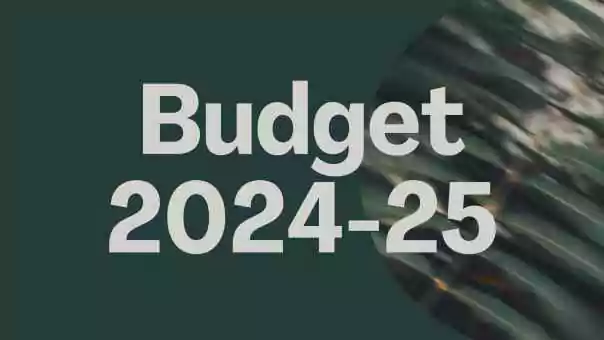PkRevenue.com – Pakistan announced on Monday that the federal budget for the fiscal year 2024-25 will be presented in the parliament on Wednesday, June 12, 2024.
The Pakistan budget, which will be unveiled by Federal Minister for Finance and Revenue Senator Muhammad Aurangzeb, comes at a critical time as the nation grapples with significant internal and external economic challenges.
The formulation of the 2024-25 budget has been undertaken with careful consideration of the prevailing economic difficulties both domestically and internationally.
Sources indicate that the Pakistan budget will focus on alleviating the suffering of the people, transforming the agriculture sector, promoting information technology (IT), and boosting exports. These areas are seen as vital for the country’s economic revival and growth.
Key priorities of the budget will include fiscal management, revenue mobilization, economic stabilization and growth, reduction in non-development expenditures, job creation, and the implementation of people-friendly policies aimed at socioeconomic prosperity. The preparation of the budget has been a coordinated effort among various departments and ministries to ensure all aspects are thoroughly addressed.
Preparations for the budget presentation are reportedly in full swing, adhering strictly to the prescribed timelines. The presentation in Parliament will be complemented by the launch of the Economic Survey of Pakistan, scheduled for June 11, 2024. This pre-budget document will provide a comprehensive overview of the country’s economic performance over the past fiscal year, offering a realistic basis for future planning.
The Economic Survey of Pakistan will be launched by Senator Muhammad Aurangzeb and will highlight major socio-economic achievements during the outgoing fiscal year 2023-24. The document will detail the performance and trends in various economic sectors, including agriculture, manufacturing and industry, services, energy, information technology and telecom, capital markets, health, education, transport, and communication.
Additionally, the survey will present annual trends of major economic indicators such as inflation, trade and payments, public debt, population, employment, climate change, and social protections. This comprehensive assessment is crucial for understanding the current economic landscape and formulating effective policies for the future.
According to the Planning Commission’s estimations presented during the Annual Plan Coordination Committee (APCC) meeting, Pakistan’s economy faced significant challenges at the start of the fiscal year 2023-24, largely due to the lingering effects of the previous year’s economic disruptions. Despite these hurdles, the economy showed moderate recovery, achieving a growth rate of 2.4% for the year.
The agriculture sector emerged as the primary driver of this growth, expanding by 6.3% thanks to bumper outputs of wheat, cotton, and rice. The industrial sector grew by 1.2%, reflecting a slowdown in large-scale manufacturing but growth in mining, quarrying, small-scale manufacturing, and construction. The services sector registered a 1.2% growth, with wholesale and retail trade experiencing minimal growth at 0.3%. Transport, storage, and communications also recorded a low growth rate of 1.2% due to subdued demand.
Total revenue collection grew by 41% during July-March 2023-24, surpassing the 36.6% growth in total expenditure. Both tax and non-tax revenues increased by 29.3% and 89.8%, respectively. Markup expenditure accounted for 40% of total expenditure. During July-April 2023-24, average inflation was recorded at 26%, down from 28.2% in the same period of the previous year. A declining inflationary trend has been observed since January 2024.
As Pakistan prepares to unveil its budget for 2024-25, the government’s focus on key economic sectors and prudent fiscal management will be crucial in navigating the country through its economic challenges and setting a path for sustainable growth.
